Episodes

Thursday Jun 11, 2020
Thursday Jun 11, 2020
Dans la deuxième partie de mon entrevue avec Olivier Hernandez, nous avons abordé plus en profondeur la question des compétences transversales qu'on développe en tant que doctorant, la question du mentorat aux études de troisième cycle et Olivier a partagé quelques conseils pour ceux d'entre vous qui embarquent dans cette aventure ou la vivent déjà.
Olivier Hernandez est astrophysicien et directeur du Planétarium Rio Tinto Alcan à Montréal depuis mai 2018. Il a d’abord étudié pour devenir ingénieur avant de se tourner vers l’astrophysique et d’obtenir son doctorat de l’Université de Montréal et du laboratoire d’astrophysique de Marseille (France). Il a longtemps travaillé comme chercheur sur les galaxies et concepteur d’instruments astronomiques à l’Université de Montréal. Les instruments sur lesquels il a travaillé se retrouvent sur divers télescopes: l’Observatoire du Mont-Mégantic, le télescope Canada-France-Hawaï ainsi que le futur télescope James Webb. En dehors du travail, Olivier aime aime le théâtre, cuisiner et regarder les étoiles!
Joignez-vous au groupe d'exploration de carrières Papa PhD !
Ce que vous apprendrez dans cet épisode :
Le premier défi qui va main dans la main avec l'autonomie, au doctorat – la procrastination
Le processus du doctorat en physique
Comment participer à des projets un peu externes à votre recherche peut vous ouvrir les horizons, amener à agrandir votre réseau et, éventuellement, à entamer votre trajet professionnel
Ce que les employeurs trouvent et valorisent chez les candidats détenteurs d'un doctorat
Comment un mentor peut façonner votre développement
L'importance de commencer à bâtir son réseau à la maîtrise
Le syndome de l'imposteur dans le milieu universitaire
Les perles de sagesse d'Olivier :
« Ça, c'est un pouvoir qu'on n'aura pas forcément ailleurs dans notre vie – c'est un pouvoir exceptionnel qu'offre le doctorat: on a la main, le contrôle complet sur un sujet que l'on étudie pendant minimum quatre ans. »
« Dans le monde réel et lorsqu'on a un doctorat, en fait, on va être amené, probablement, à gérer des projets d'importance, parce que les employeurs vont se fixer sur notre capacité à avoir cette rigueur et cette capacité de recul sur les projets, mais ils vont avoir besoin, aussi, de la capacité des doctorants à planifier et à établir correctement un lien dans le type de travail qu'on doit faire. Et tout ça, j'ai réussi à l'apprendre non seulement au doctorat, mais aussi dans les étapes après – postdoc et les postes que j'ai eu à l'université. »
« Ce n'est pas évident de trouver la personne avec qui tu vas t'entendre. Et c'est pour ça, aussi, que je pense que, par exemple, faire une maîtrise ça aide énormément. Ça aide parce que ça permet de voir le département, de voir l'ensemble des professeurs – on n'est pas obligé de continuer sa maîtrise avec le professeur ou la professeure que l'on a. Et on peut changer pour pouvoir aller au doctorat – on peut aussi complètement changer de sujet, ou quoi que ce soit, et c'est pour ça que la maîtrise a un effet bénéfique et, en fait, je ne pense pas que la carrière d'une personne doit être en accéléré tout le temps. Et les études supérieures, ça permet de prendre le temps de faire les choses correctement. »
« Prenez le temps de chaque étape – il n'y a rien qui vous presse, dans la vie. Que vous finissiez votre doctorat à 30 ans, 31 ans ou 32 ans, ça ne change rien. Ça ne changera rien sur votre carrière – elle arrivera à se bâtir, quand même. »
Les liens d'Olivier : Linkedin – Linkedin.com/in/olivierhernandez; Twitter – @OlivierHer; Planétarium Rio Tinto Alcan; Espace Pour la Vie.
Laissez une évaluation sur Podchaser !
Soutenez Papa PhD sur Patreon !
Vous aimerez aussi ces épisodes :
Boîte à outils pour les études doctorales – Mon cheminement
: PapaPhD.com/37
Carine Monat – Journalisme scientifique : PapaPhD.com/40
Dana Murchison – Canadian Museum of Nature : PapaPhD.com/1
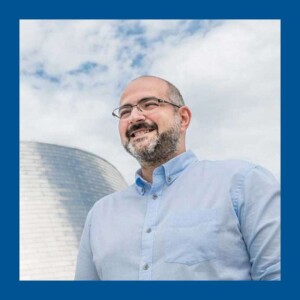
Wednesday Jun 10, 2020
Wednesday Jun 10, 2020
Cette semaine, je vous apporte une passionnante conversation dans l'univers du génie et de l'astrophysique. Au cours de cet échange avec mon invité, Olivier Hernandez, vous apprendrez à quoi peut ressembler un trajet académique du domaine de l'ingénierie au doctorat en astrophysique et on vous amènera dans une intéressante discussion à propos de la réalité du doctorat au jour-le-jour et du rôle que des études de troisième cycle peuvent jouer dans votre vie universitaire, mais aussi dans votre vie professionnelle.
Olivier Hernandez est astrophysicien et directeur du Planétarium Rio Tinto Alcan à Montréal depuis mai 2018. Il a d’abord étudié pour devenir ingénieur avant de se tourner vers l’astrophysique et d’obtenir son doctorat de l’Université de Montréal et du laboratoire d’astrophysique de Marseille (France). Il a longtemps travaillé comme chercheur sur les galaxies et concepteur d’instruments astronomiques à l’Université de Montréal. Les instruments sur lesquels il a travaillé se retrouvent sur divers télescopes: l’Observatoire du Mont-Mégantic, le télescope Canada-France-Hawaï ainsi que le futur télescope James Webb. En dehors du travail, Olivier aime aime le théâtre, cuisiner et regarder les étoiles!
Joignez-vous au groupe d'exploration de carrières Papa PhD !
Ce que vous apprendrez dans cet épisode :
Le trajet académique vers l'astrophysique
La formation des ingénieurs en France
La valeur et le potentiel que peut avoir votre maîtrise dans votre vie académique et l'intérêt de la terminer avant de passer au doctorat
Comment un passage en industrie peut avoir des retombées positives sur votre trajet académique et professionnel
L'intérêt de faire un doctorat en cotutelle
L'autonomie et les compétences de gestion de projet qu'on développe au doctorat
Le trajet de développement de carrière des détenteurs de doctorats dans l'industrie
Les perles de sagesse d'Olivier :
« Je pense que ça a été une des plus belles expériences de ma vie, le doctorat. Je pense que c'est vraiment un moment plaisant, difficile – et je comprends que ce n'est pas tous les jours facile, mais c'est le moment où on a le plus de liberté et le plus de créativité possible pour faire quelque chose. C'est vraiment un moment plaisant et j'encourage tous les gens un peu partout où je suis d'aller faire des études supérieures et de faire le doctorat parce que c'est vraiment une expérience différente de tout ce qu'on connaît. Même par rapport à la maîtrise où la maîtrise est assez régulière – on apprend à faire de la recherche. Le doctorat va vraiment nous pousser à avoir une autonomie incroyable et une créativité qu'on n'a pas ailleurs, et ça, c'est vraiment exceptionnel. »
« En partant, tous les sujets qu'on choisit au début du doctorat, probablement, changent, évolue au fur et à mesure qu'on fait son doctorat, parce qu'on rencontre soit des portes fermées, soit on s'aperçoit que ce qu'on pensait, au début, être une bonne idée n'est pas forcément une bonne idée – quelqu'un d'autre l'a peut-être étudié, aussi. On a beau essayer de faire une revue de la littérature de ce qui existe un peu partout – on s'aperçoit qu'il y a des gens qui touchent plus ou moins le sujet et qui ont tout de suite trouvé une impasse. Donc il faut avoir cette habileté à vraiment être créatif, justement, pour pouvoir embarquer sur une autre voie, essayer de comprendre comment on peut intégrer tout ce qui a été fait. Et puis il y a cette force, chez les doctorants, d'avoir cette capacité de synthèse qu'on n'a pas, forcément, tout de suite, en maîtrise. »
« La maîtrise, c'est un outil vraiment puissant pour comprendre comment on fait de la recherche. Il faut passer, à mon avis, à travers l'outil de la maîtrise de se casser la tête sur des sujets et d'être capable de comprendre comment ça fonctionne et de rédiger, surtout, son rapport pour pouvoir faire en sorte que ce soir utile pour son doctorat. Tout ce qu'on a fait à la maîtrise, ça va servir, un peu,

Thursday May 28, 2020
Thursday May 28, 2020
In Part 2 of my conversation with Zoë Ayres, we discussed her experience transitioning from an industry-led postdoc to her current position in the water industry. We talked about the application and interviewing process and about best practices at this important stage, about what you bring to the table as a candidate when you have a PhD, and also about Zoë's experience so far as a research scientist.
Zoë is an analytical scientist by background. She did her undergraduate in forensic science, before pursuing analytical chemistry, and going on to do her PhD research on the development of electrochemical sensors at the University of Warwick in the UK. She is now an R&D scientist in the water industry, having made the transition from academia to industry just over two years ago. Zoë is also an active mental health advocator, raising awareness around mental health in graduate school and beyond..
Join the Papa PhD Postgraduate Career Exploration Group!
What you’ll learn about in this episode:
You seldom fulfill all the requirements on a job posting - this doesn't mean you're not the right person for the position
The importance of reframing your experience and making your case
Outside of academia, no one looks at your publication record - they're interested in your story, in your skills
Project management, team leading, and communications skills are PhD strong suits
Zoë's experience of the industry culture
The myth that work in industry is devoid of creative freedom is false
Career progression in industry
This episode’s pearls of wisdom:
“When I was writing my CV, I remember thinking "Gosh - my publications aren't really relevant." For me, I tried to really reframe my experience in a way that would be appealing.”
“For my CV, I really made sure that I was drawing on the fact that we think that when we're in the lab and we're doing a PhD and we might be looking after un undergraduate project, for example, and you can write that you supervised some undergraduates. And you can write that as your experience of that supervision, and that you are capable of going into a role where you lead people.”
“One of the things I remember someone saying to me is that you will not be creative like you are here, in academia. And I remember thinking 'I actually enjoy being creative - is that something that I'm going to lose?' Because even though I had industrially sponsored PhD and posdoc research, it was primarily academic. And so I kind of toyed with the concept of whether or not I'd actually have the freedoms to do what I wanted to do - and think it probably varies company by company. But I've been very lucky that I have the creative freedom that I do and that everyday I get into work and I actually enjoy doing the research. It does get me out of bed in the morning, so I think it's a good thing.”
Zoë's links: LinkedIn.com/in/ZJAyres; Twitter – @ZJAyres; www.ZJAyres.com.
Leave a review on Podchaser !
Support the show on Patreon !
You might also like the following episodes:
Dana Murchison – Science Outreach: PapaPhD.com/1
Jonathan Weitzman – Professorship and Industry: PapaPhD.com/46
Liliana Vitorino – Biomedical Industry: PapaPhD.com/31
Simon Moore – Postdoc to Industry: PapaPhD.com/18
Launching your podcast?
If you're preparing to launch your podcast, you may be asking yourself what hosting platform to use.
I launched Papa PhD on Bluebrry because I wanted a professional service that would interface with my WordPress website, that would robustly broadcast Papa PhD to all platforms, and that would allow me to grow my podcast in years to come.
And these are the reasons why I'm recommending the Blubrry podcast hosting and syndication platform.
Click on the button below or use the promo code PapaPhDBlue on the Blubrry website to unlock a one month free trial:
Try one free month with Blubrry !
If you are starting a serious podcast project, do consider one of the first podcasting hosts out there,
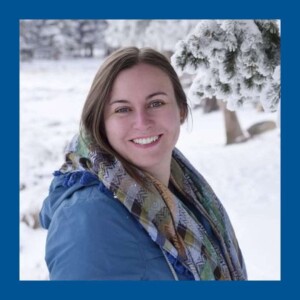
Wednesday May 27, 2020
Wednesday May 27, 2020
Do you ever wish you could try your hand at an industry job without putting your academic career on halt? In this week's episode, you'll hear about Zoë Ayres and about how she managed to do exactly that by choosing to do take on industry-backed projects for her master's, her PhD, and her postdoc in the chemistry domain.
Zoë is an analytical scientist by background. She did her undergraduate in forensic science, before pursuing analytical chemistry, and going on to do her PhD research on the development of electrochemical sensors at the University of Warwick in the UK. She is now an R&D scientist in the water industry, having made the transition from academia to industry just over two years ago. Zoë is also an active mental health advocator, raising awareness around mental health in graduate school and beyond.
Join the Papa PhD Postgraduate Career Exploration Group!
What you’ll learn about in this episode:
How an industry-led MSc, PhD, or postdoc can give you a perspective on non-academic research
Industry-backed funding in the UK
The importance of having a positive mindset and of not taking rejection personally when applying and interviewing for different positions
Why your grades and your publications don't matter for non-academic employers
The importance of looking for help on campus or around you when you feel you're struggling with anxiety, depression or any other mental health issues
Zoë's mental health in graduate school poster series
This episode’s pearls of wisdom:
“I've started to look at CVs, now and I'm not just looking to see how many papers people have published. Quite frankly, I don't really care. I care more about skills like team work and the ability to adapt. Papers matter so much for academia and yet, for industry, unless I'm looking at the papers and saying, 'ok, this person clearly can collaborate very well because they're on a paper with seven people', in reality it doesn't count and the weight is not as high. And I thinkj that's something graduate students worry about a lot.”
“[In my industry-sponsored research] I got to work on things like patents, for example, and they are absolutely still applicable to my day job going forward. So there are skillsets there that I developed that actually I could go and hit the ground running when I moved into my industrial position, because I already had that experience.”
“For me, I think, first and foremost, it would be to tell myself that science doesn't always work and that we also make mistakes al lot of the time, and that's completely fine. And it's easy for me to say now – I've got a lot of experience with making a lot of mistakes. And some of the mistakes I've made in my scientific career up to this point have actually led to thing that have been really good. And I mean, I've produced papers on mistakes.”
“Reaching out and speaking to people is so important. It took me about six months to open up to my colleagues and say "I'm not actually doing ok". And I think that was six months that I could have been getting better.”
Zoë's links: LinkedIn.com/in/ZJAyres; Twitter – @ZJAyres; www.ZJAyres.com.
Leave a review on Podchaser !
Support the show on Patreon !
You might also like the following episodes:
Dana Murchison – Science Outreach: PapaPhD.com/1
Jonathan Weitzman – Professorship and Industry: PapaPhD.com/46
Liliana Vitorino – Biomedical Industry: PapaPhD.com/31
Simon Moore – Postdoc to Industry: PapaPhD.com/18
Launching your podcast?
If you're preparing to launch your podcast, you may be asking yourself what hosting platform to use.
I launched Papa PhD on Bluebrry because I wanted a professional service that would interface with my WordPress website, that would robustly broadcast Papa PhD to all platforms, and that would allow me to grow my podcast in years to come.
And these are the reasons why I'm recommending the Blubrry podcast hosting and syndication platform.
Click on the button below or use the promo code PapaPhDBlu...
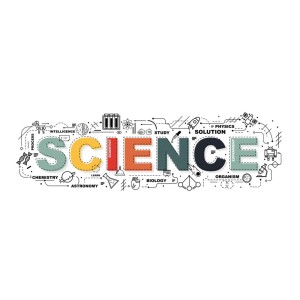
Thursday May 14, 2020
Thursday May 14, 2020
In Part 2 of my interview with Maryse Thomas, we talk about the role scientists can play in disseminating sound scientific information. We also discuss the UsefulScience.org and how being director of this science popularization platform has beciome an integral part of her academic career.
Maryse Thomas is a post-doctoral research fellow at the Massachussets Eye and Ear and Harvard Medical School in Boston. Originally from Montreal, she received her PhD at McGill University in the field of auditory neuroscience. Maryse is interested in digital media and science communication and has been the Director of the website UsefulScience.org since 2018. Useful Science publishes short summaries of scientific research relevant to everyday life and also produces a podcast that dives into the science behind those studies.
Join the Papa PhD Postgraduate Career Exploration Group!
What you’ll learn about in this episode:
The process of applying for postdocsThe job talk and how to prepare for itThe power of volunteer websites if you want to find projects to contribute toHow student-led initiatives are leading the way turning graduate researchers on to science communication and how some universities are following suitHow you can gain science communication experience while in graduate schoolThis episode’s pearls of wisdom:“I feel like it is, unfortunately, in some ways, the students who have picked up the slack and who have created these opportunities for other students. For example, a workshop that I attended in my last year of my PhD at McGill was run entirely by other graduate students. It was a science communications workshop called 'Spell Your Science'. And so now, I do see those opportunities advertised much more, so I would suggest anyone looking to get into them to scan those newletters that you get from your program. And I think more of them are also university sponsored.”“There are more traditional ways to gain experience in writing that would help you in science communication. For example, I participated in student newspapers - I was a design editor, so I wasn't a typical editor like you might think of, but I was doing the graphic design and the layout, but I got to see the process and how it worked. And after that I also participated in some undergraduate science journals. So those are more established groups that have been around for a longer time, but those can give you the same kind of skills and maybe, even, connections to a scicomm path, eventually.”“The skills that you learn as a researcher, even if you're doing basic research, include analysis of texts, of scientific articles - knowing how to read the artilce and to parse it, and knowing how to look into the statistics. And those skills apply to any field.”“Not every scientist has to be the best communicator to the public, but if at least a fraction of us try to do so and try to develop those skills, then it could make a difference and help us in those conversations that we happen to have with our family, with our friends, or even on the bus. And one way to develop these skills of science communication, maybe through attending an online workhsop or an in person workshop, or reading a bit about it, or practicing by becoming a volunteer for one of these organizations. I think all of it could, in sum, make a difference on how people perceive scientists, both in their community and the ones that they see on TV.” Maryse's links: Linkedin.com/in/maryse-thomas-8a2b9752; UsefulScience.org. To submit an article to Useful Science, go to: www.usefulscience.org/submit; Scicomm Board.
Leave a review on Podchaser !
Support the show on Patreon !
Launching your podcast?
If you're preparing to launch your podcast, you may be asking yourself what hosting platform to use.
I launched Papa PhD on Bluebrry because I wanted a professional service that would interface with my WordPress website,
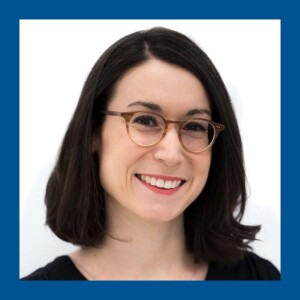
Wednesday May 13, 2020
Wednesday May 13, 2020
In this episode, we’re going to talk with Maryse Thomas, Director of the Useful Science website and podcast, about science communication and popularization, and about how it can enrich your graduate school experience and your career as a young researcher. We’re also going to hear about her PhD and about her recent experience going abroad for her postdoc and about her insights on how to make the best of this first dive into the academic career.
Maryse Thomas is a post-doctoral research fellow at the Massachussets Eye and Ear and Harvard Medical School in Boston. Originally from Montreal, she received her PhD at McGill University in the field of auditory neuroscience. Maryse is interested in digital media and science communication and has been the Director of the website UsefulScience.org since 2018. Useful Science publishes short summaries of scientific research relevant to everyday life and also produces a podcast that dives into the science behind those studies.
Join the Papa PhD Postgraduate Career Exploration Group!
What you’ll learn about in this episode:
The challenge of balancing starting a postdoc before defending your PhD
The importance of social activities and of staying in contact with your friends and family when adapting to a new city/country
Why you should look for alumni groups from your alma mater around you
Science communication as a platform for graduate researchers to share their knowledge
How side-projects or student communities you're part of in graduate school enrich your experience and can have ripple effects in your professional life
How to articulate a having side-project with reaching your research goals
This episode’s pearls of wisdom:
“I also made a point of getting in touch with people I knew in Boston. There's a big Montreal and McGill community in Boston – there's just this network of researchers who end up going there, often times for postdocs or PhDs. So I had some friends that I either didn't know very well or hadn't spoken to in a few years that I made a point of getting in touch with and so, having those familiar faces around me in Boston also helped, I guess, with that whole experience.”
“I think there has been a growth in this science communication world that has really managed to reach out and has struck a cord with a lot of graduate students who feel like they want to be doing a bit more with the skills that they've learned in grad school, or who might even be looking for other career opportunities, or to change their career paths.”
“If you want to start having Zoom chats with your family it's so easy, now. And now we realize that. In the last two months I've spoken to people who I probably wouldn't have spoken with on a regular basis just because everybody almost feels closer in that way. And so, with my family and with my partner I was definitely speaking more often on the phone and keeping in touch that way.”
Maryse's links: Linkedin.com/in/maryse-thomas-8a2b9752; UsefulScience.org. To submit an article to Useful Science, go to: www.usefulscience.org/submit; Scicomm Board.
Leave a review on Podchaser !
Support the show on Patreon !
Launching your podcast?
If you're preparing to launch your podcast, you may be asking yourself what hosting platform to use.
I launched Papa PhD on Bluebrry because I wanted a professional service that would interface with my WordPress website, that would robustly broadcast Papa PhD to all platforms, and that would allow me to grow my podcast in years to come.
And these are the reasons why I'm recommending the Blubrry podcast hosting and syndication platform.
Click on the button below or use the promo code PapaPhDBlue on the Blubrry website to unlock a one month free trial:
Try one free month with Blubrry !
If you are starting a serious podcast project, do consider one of the first podcasting hosts out there, offering state of the art services, including IAB certified statistics,
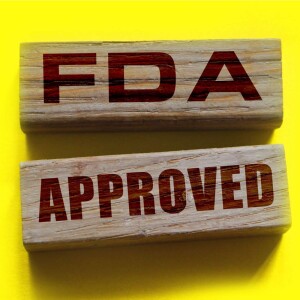
Thursday May 07, 2020
Thursday May 07, 2020
In the second part of my conversation with Nathalie Ross, we discussed what brought her to the regulatory affairs domain and I asked her to describe in more detail what the job entails and what the day-to-day of a freelance medical writer looks like.
Nathalie Ross, Ph.D., MWC, a former research scientist, is a bilingual (French & English) Medical and Regulatory writer with over 15 years of experience.
Her curriculum also includes Senior Manager, Regulatory Affairs at Mapi (formely CanReg), where she managed a large number of drug and medical device applications for Health Canada and the FDA in a wide spectrum of therapeutic areas (cardiovascular, dentistry, gastrointestinal, oncology, orthopaedic, paediatrics, and plastic surgery).
Nathalie developed teaching and R&D skills through her positions as a Research Scientist (Environment Canada) and as an Assistant Professor (University of Ottawa). She is a member of the American Medical Writers Association (AMWA), Canadian Association of Professional Regulatory Affairs (CAPRA), and Association des communicateurs scientifiques du Québec (ACS).
She is based in Montreal, Quebec, Canada, where she works in partnership with her local, national, and international clientele.
Join the Papa PhD Postgraduate Career Exploration Group!
What you’ll learn about in this episode:
The importance of playing to your strong suits in choosing your career
Why you should always be growing your professional network
How you can find inspirations in role models or mentors
The pros and cons of being a freelancer
How you can start building a porfolio during your graduate studies
The day-to-day of work as a scientific and medical writer
Important aspects of dealing with clients as a medical writer
This episode’s pearls of wisdom:
“When you are an employee, the responsibility of finding the clients and the projects is not on your shoulders, but when you transition to be on your own, all your good skills remain but it's up to you to find the projects. So you have to add the marketing strategies, you need to think about how you will promote yourself – it might not be something super natural, but it's much needed if you want to be known.”
“When I was asked to do this column, I was talking with a senior friend of mine and said 'well, I don't know if I want to go that way, I might not have time'. And she told me something I will never forget: 'when you finish your PhD, you'll start with your life, you might be a research scientist, you might have kids... you won't have time. So take the time now.”
Nathalie's links: Twitter – @NathalieRoss1; LinkedIn.com/in/NathalieRossWriting; NathalieRoss.com.
Have a Zoom Call With David !
Support the show on Patreon !
You might also like the following episodes:
Clarissa Wright – Publishing: PapaPhD.com/34
Fiona Robinson – Patient education: PapaPhD.com/6
Liliana Vitorino – Industry: PapaPhD.com/31
Tamarah Luk – Entertainment Law: PapaPhD.com/10
Launching your podcast?
If you're preparing to launch your podcast, you may be asking yourself what hosting platform to use.
I launched Papa PhD on Bluebrry because I wanted a professional service that would interface with my WordPress website, that would robustly broadcast Papa PhD to all platforms, and that would allow me to grow my podcast in years to come.
And these are the reasons why I'm recommending the Blubrry podcast hosting and syndication platform.
Click on the button below or use the promo code PapaPhDBlue on the Blubrry website to unlock a one month free trial:
Try one free month with Blubrry !
If you are starting a serious podcast project, do consider one of the first podcasting hosts out there, offering state of the art services, including IAB certified statistics, based on years of experience in the podcasting space.
Happy podcasting!
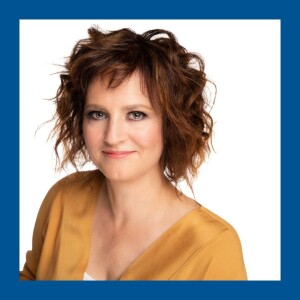
Thursday May 07, 2020
Thursday May 07, 2020
The COVID-19 pandemic we’re going through as this episode is airing has made us more aware than ever of how complex and time-consuming it is to study, test, and approve medical treatments. This week’s guest, Nathalie Ross, is going to share her experience in a domain where, as a PhD, she felt she was actively contributing to the advancement of medical treatments for real patients out there – as a scientific and medical writer in the domain of regulatory affairs.
Nathalie Ross, Ph.D., MWC, a former research scientist, is a bilingual (French & English) Medical and Regulatory writer with over 15 years of experience.
Her curriculum also includes Senior Manager, Regulatory Affairs at Mapi (formely CanReg), where she managed a large number of drug and medical device applications for Health Canada and the FDA in a wide spectrum of therapeutic areas (cardiovascular, dentistry, gastrointestinal, oncology, orthopaedic, paediatrics, and plastic surgery).
Nathalie developed teaching and R&D skills through her positions as a Research Scientist (Environment Canada) and as an Assistant Professor (University of Ottawa). She is a member of the American Medical Writers Association (AMWA), Canadian Association of Professional Regulatory Affairs (CAPRA), and Association des communicateurs scientifiques du Québec (ACS).
She is based in Montreal, Quebec, Canada, where she works in partnership with her local, national, and international clientele.
Join the Papa PhD Postgraduate Career Exploration Group!
What you’ll learn about in this episode:
You can always decide to pivot, professionally
The industry-funded research scientist track if you want to research and teach at the university level outisde of the tenure track
Regulatory affairs as a stimulating career option for PhDs
The advantages of getting a certificate in medical writing to access the domain
This episode’s pearls of wisdom:
“People thought I was crazy to leave a job that was tenure track to go there [regulatory affairs].”
“I didn't start as a senior manager because I was very new in a field where I was learning – I started at the bottom. However, because of all the skills that were already available – you mentioned the writing skills and I can identify a couple. Then I went from an associate to senior associate, manager to senior manager.”
“When you do a PhD, you have to learn how to be organized. Organize your thoughts, organize everything. Specifically, for regulatory affairs, one of the key skills is to be detail-oriented, to be curious, because you will change from one project to another.”
Nathalie's links:@NathalieRoss1; LinkedIn.com/in/NathalieRossWriting; NathalieRoss.com.
Have a Zoom Call With David !
Support the show on Patreon !
You might also like the following episodes:
Clarissa Wright – Publishing: PapaPhD.com/34
Fiona Robinson – Patient education: PapaPhD.com/6
Liliana Vitorino – Industry: PapaPhD.com/31
Tamarah Luk – Entertainment Law: PapaPhD.com/10
Launching your podcast?
If you're preparing to launch your podcast, you may be asking yourself what hosting platform to use.
I launched Papa PhD on Bluebrry because I wanted a professional service that would interface with my WordPress website, that would robustly broadcast Papa PhD to all platforms, and that would allow me to grow my podcast in years to come.
And these are the reasons why I'm recommending the Blubrry podcast hosting and syndication platform.
Click on the button below or use the promo code PapaPhDBlue on the Blubrry website to unlock a one month free trial:
Try one free month with Blubrry !
If you are starting a serious podcast project, do consider one of the first podcasting hosts out there, offering state of the art services, including IAB certified statistics, based on years of experience in the podcasting space.
Happy podcasting!

Thursday Apr 30, 2020
Thursday Apr 30, 2020
Dans la deuxième partie de notre entrevue, Anne-Hélène nous parle de comment s’est déroulé pour elle le passage au marché du travail et de ce qu’elle fait aujourd’hui. Elle nous parlera aussi de l’expérience de publier un essai basé sur sa thèse et partagera avec vous ses conseils pour votre passage au doctorat et pour la construction de votre carrière.
Docteure en littérature française et bachelière en anthropologie, Anne-Hélène est une passionnée des mots, mais aussi d’enseignement dans le domaine des lettres.
Sa vie professionnelle est bien remplie, alliant les rôles de chef de contenu à l'agence 37e AVENUE, d'enseignante de littérature au Collège Ahuntsic et de tutrice en littérature et en rédaction à l'Université TÉLUQ.
Elle a publié en 2018 un essai tiré de sa thèse de doctorat, intitulé Proust à la guerre comme à la fête, aux éditions Honoré-Champion.
Joignez-vous au groupe d'exploration de carrières Papa PhD !
Ce que vous apprendrez dans cet épisode :
Le rôle que peut jouer, plus tard, un stage d'enseignement au collégial
L'importance de se créer un réseau dans son domaine d'expertise
Le bourses et le financement des doctorats en sciences humaines au Canada
L'effet positif de l'activité physique sur la santé mentale
L'expérience de publier un livre basé sur votre thèse
Les programmes d'aide à la publication savante
Il faut reconnaître et accepter le syndrome de l'imposteur, qui revient à différent stades de notre vie professionnelle
Les perles de sagesse d'Anne-Hélène :
« Le fait de tisser des liens autour de notre recherche et dans notre domaine d'expertise, eh bien, ces liens-là, ils peuvent être pertinents, par la suite. On ne les fait pas dans le but de les utiliser, mais c'est juste humain, après . »
« J'ai commencé à faire de la course à pied juste avant de commencer la maîtrise. Je ne suis pas du tout une coureuse rapide, je participe à très peu de courses balisées. Je cours vraiment pour ma santé mentale. Et, vraiment, c'est mon antidépresseur, depuis 15 ans, de courir, en fait. »
Les liens d'Anne-Hélène : Linkedin.
Laissez une évaluation sur Podchaser !
Soutenez Papa PhD sur Patreon !
Vous aimerez aussi ces épisodes :
Carine Monat – Journalisme scientifique : PapaPhD.com/40
Martin Primeau – Communication scientifique : PapaPhD.com/44; PapaphD.com/45
Simon Landry – Courtier de connaissances : PapaPhD.com/14
Valérie Levée – Journalisme : PapaPhD.com/38
Envie de lancer un podcast?
Mon ami et collègue podcasteur Marco Bernard et son Académie du Podcast ont ce qu'il vous faut si vous avez une idée, mais qu'il vous manque les connaissances pour mettre en place votre podcast.
Dans la formation Podcasting 101, Marco a préparé plus de 20 vidéos et des tutoriels où il explique quel équipement se procurer, comment faire le montage et comment le mettre en ondes sur les principales plateformes. Cliquez maintenant pour vous inscrire et avoir accès à la communauté !
Formation Podcasting 101 de l'Académie du Podcast
Dans la formation Podcaster Pro, il a pensé aux professionnels et créateurs qui non seulement veulent lancer leur podcast, mais ont des objectifs précis à atteindre avec celui-ci. C'est en pensant à eux qu'il a préparé plus de 80 vidéos et des tutoriels où il explique non seulement comment lancer son podcast, mais comment y amener des invités de qualité, comment le promouvoir et comment atteindre vos résultats en utilisant cette plateforme. Cliquez maintenant pour vous inscrire si vous voulez créer la meilleure vitrine pour vos affaires ou pour votre contenu !
Formation Podcaster PRO de l'Académie du Podcast
En suivant ces liens affiliés, vous aiderez à la production de Papa PhD, donc assurez-vous d'y accéder à partir des boutons sur cette page ou en utilisant les adresses PapaphD.com/Podcast101 ou PapaPhD.com/PodcastPRO. Merci!
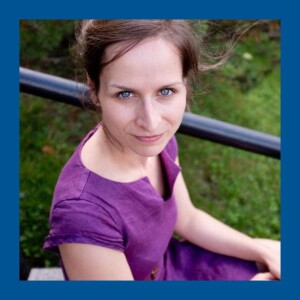
Thursday Apr 30, 2020
Thursday Apr 30, 2020
Cette semaine, Papa PhD ouvre une fenêtre sur les lettres. Comment se passe un doctorat en littérature? Est-ce qu’il y a des bourses? Et quelles sont les emplois auxquels il mène? Pour en parler, nous avons aujourd’hui au micro Anne-Hélène Dupont qui, dans un premier temps, nous parlera de son parcours académique et, dans la deuxième partie, nous décrira de quoi a l’air sa vie professionnelle aujourd’hui.
Docteure en littérature française et bachelière en anthropologie, Anne-Hélène est une passionnée des mots, mais aussi d’enseignement dans le domaine des lettres.
Sa vie professionnelle est bien remplie, alliant les rôles de chef de contenu à l'agence 37e AVENUE, d'enseignante de littérature au Collège Ahuntsic et de tutrice en littérature et en rédaction à l'Université TÉLUQ.
Elle a publié en 2018 un essai tiré de sa thèse de doctorat, intitulé Proust à la guerre comme à la fête, aux éditions Honoré-Champion.
Joignez-vous au groupe d'exploration de carrières Papa PhD !
Ce que vous apprendrez dans cet épisode :
L'intérêt de l'enseignement au niveau collégial comme complément au doctorat
Il n'y a qu'un faible nombre de postes de professeur pour le nombre de doctorés, chaque année
L'importance de profiter des stages professionnels, s'ils vous sont offerts
Ce qu'est une agence de production de contenu
Comment accéder au domaine de la communication après un doctorat en lettres
Les compétences transversales qu'on apporte avec nous après un doctorat
Les perles de sagesse d'Anne-Hélène :
« Je pense que c'est important de toujours garder en tête, bien sûr, le côté vulgarisation – c'est ça notre objectif quand on fait du journalisme, sauf qu'il y a, quand-même, une certaine maturité et une certaine capacité à parler avec des chercheurs qui est précieuse dans ce domaine-là, en particulier. Et ce n'est pas seulement vrai pour le milieu des comms, mais je crois qu'un doctorat, mener à bien un projet comme ça, ça nous amène à développer une maturité. Donc même si on commence dans un domaine, je pense qu'on dégage une sorte de maturité professionnelle. »
« Les universités offrent souvent des ateliers de préparation à la carrière. Et, des fois, ça nous dégoute un peu – on ne veut pas penser à ça. Dire " ouach... Il va falloir se vendre... ". En tout cas, moi, j'étais une idéaliste, je pensais que c'était une pure méritocratie, ce monde universitaire, mais il faut savoir que même dans le monde universitaire il faut être capable de la mettre en marché, sa recherche, et de la " vendre " – entre gros guillemets pas beaux. Mais c'est la réalité, donc même si ça fait mal, eh bien, je pense qu'il faut quand même se préparer à ce fait-là qu'il va falloir être capable de vendre un peu nos compétences. Et puis, donc, aller chercher, profiter d'ateliers qui sont offerts par les services d'orientation des universités, essayer de sauter sur quelques occasions. »
Les liens d'Anne-Hélène : Linkedin.
Laissez une évaluation sur Podchaser !
Soutenez Papa PhD sur Patreon !
Vous aimerez aussi ces épisodes :
Carine Monat – Journalisme scientifique : PapaPhD.com/40
Martin Primeau – Communication scientifique : PapaPhD.com/44; PapaphD.com/45
Simon Landry – Courtier de connaissances : PapaPhD.com/14
Valérie Levée – Journalisme : PapaPhD.com/38
Envie de lancer un podcast?
Mon ami et collègue podcasteur Marco Bernard et son Académie du Podcast ont ce qu'il vous faut si vous avez une idée, mais qu'il vous manque les connaissances pour mettre en place votre podcast.
Dans la formation Podcasting 101, Marco a préparé plus de 20 vidéos et des tutoriels où il explique quel équipement se procurer, comment faire le montage et comment le mettre en ondes sur les principales plateformes. Cliquez maintenant pour vous inscrire et avoir accès à la communauté !
Formation Podcasting 101 de l'Académie du Podcast
Dans la formation Podcaster Pro, il a pensé aux professionnels et créateurs qui non seulement veulent lancer leur podcast,
